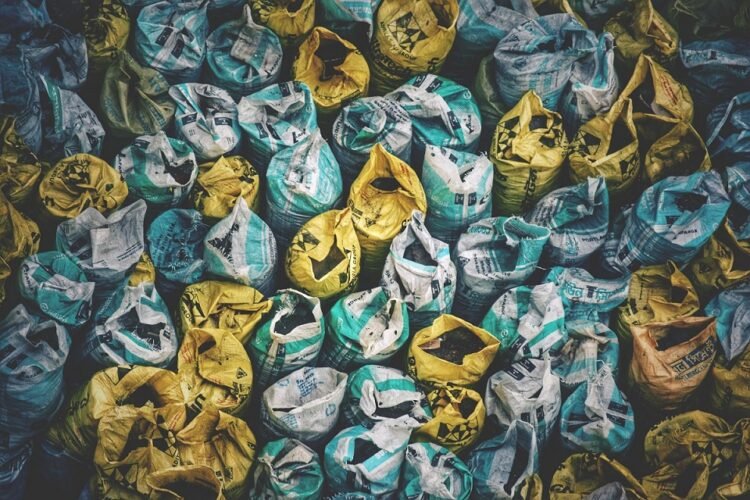So, what is a circular economy? It’s what all business who are serious about CSR should be aiming for. It requires a model of production and consumption that prepares for the end of life of a product. We should aim for our products to be created and recycled or repaired, leaving as small of a trace as possible on the earth.
In India, the emphasis on sustainability and responsible business practices is growing, with companies increasingly adopting circular economy strategies as part of their CSR efforts. Though India didn’t quite make the list for the most business friendly countries, it is my fervent belief that India has the building blocks to become one of – the best – performing countries in terms of its circular economy. So together, we’re going to take a look at some of the ways that India can harness its power to make business better.
The Economic Impact of the Circular Economy in India
As the saying goes, ‘money talks’. So, it makes sense to look at the economic impact that the circular economy has in India. By 2025, the waste management industry in India is projected to reach a seriously impressive $13.62 billion. Some of this is down to businesses adopting circular policies. Simply through waste reduction and resource efficiency, costs can be cut, and savings can be made.
Plus, this approach has far reaching benefits too. New job opportunities in recycling and waste management pop up, spurring economic growth. New business ideas can grow, thanks to the innovative approach that’s necessary when working with waste.
Addressing the Plastic Crisis
India as a country generates a staggering 3.3 million metric tons of plastic waste annually. There’s no sugar coating it, this is a huge environmental challenge. However, several Indian companies have already launched CSR programs focused on reducing plastic waste. These initiatives have included all kinds of different approaches to the problem like recycling projects, beach clean-ups, and awareness campaigns.
One company that’s been making a difference is Reliance Industries Limited (RIL). This is one of India’s largest conglomerates, so seeing a company of this size make positive change is a huge step – and hopefully a catalyst for change from other companies too. They launched the Recron GreenGold initiative to turn plastic waste into high quality polyester fibre. The fibre is then used to create textiles for a variety of markets, including clothing, home furnishings and even car interiors. At the moment, they recycle around two billion plastic bottles annually, with sights set on managing – even more – over the coming decade. They’re working with local communities, NGOs and waste collectors to expand their work and make it easier for other businesses to adopt similar sustainable practices.
Turning Waste Into Power
India produces around 500 million tons of agricultural residue annually. The traditional way to deal with this waste was to – burn – it. Can you imagine?! This doesn’t only generate a – foul – smell, it also results in a plethora of environmental issues. Thankfully, a handful of innovative CSR projects are addressing this problem by converting agricultural waste into biofuels and biogas. They’re able to not only find a use for this waste, which would otherwise have been burned, but they’re also creating a cleaner way to run vehicles in the process. In fact, some more rural communities now have a more stable source of energy, helping to lift them out of poverty.
Another area where power is being created from waste is in the waste to electricity industry. Ramky Enviro Engineers Limited (REEL) is a company that has created a brilliant waste-to-energy solution. They already run several wastes to energy plants across the country (with plans to create even more). These convert municipal solid waste into electricity. Not only does this reduce the burden on landfills but it also provides a sustainable energy source for the local community, helping to provide electrical security. What most would consider a win-win! The Jawaharnagar waste to energy plant in Hyderabad processes over 1,200 tonnes of municipal solid waste each and every – day. It generates 19.8 megawatts of electricity in the process. This – reduces – greenhouse gas emissions and also – decreases – India’s reliance on fossil fuels, a win-win for the circular economy.
Combatting Food Waste with CSR Programs
Globally, we waste enough food each year to feed the world’s hungry population between two and three times over. It’s staggering. In India alone, nearly 40% of the food produced is wasted. Some is not harvested from fields, some goes out of date before it is sold, and some is bought and then left to go to waste. This is particularly upsetting as India is home to 190 million people living in food poverty.
So, a handful of CSR initiatives have cropped up, which are aiming to redistribute surplus food to those in need. Food banks are a particularly popular way to deal with this problem, as are soup kitchens, which the hungry can visit. Of course, the other way is to tackle the problem of perishability, with several companies having remarkable success in extending the shelf life of food.






















